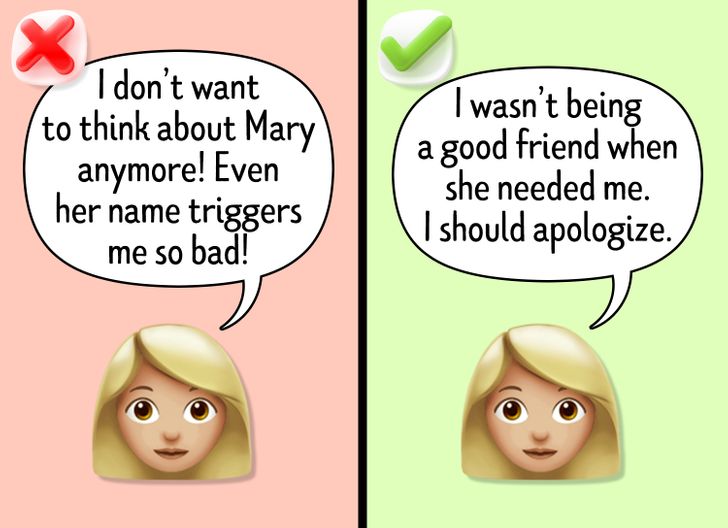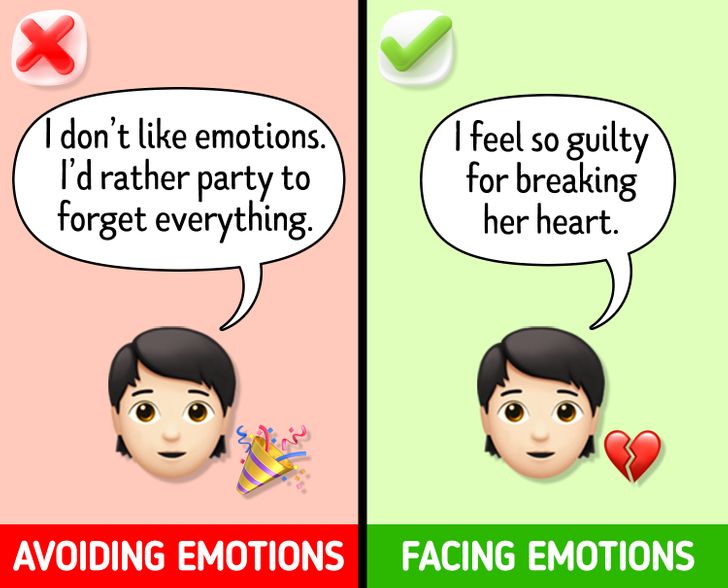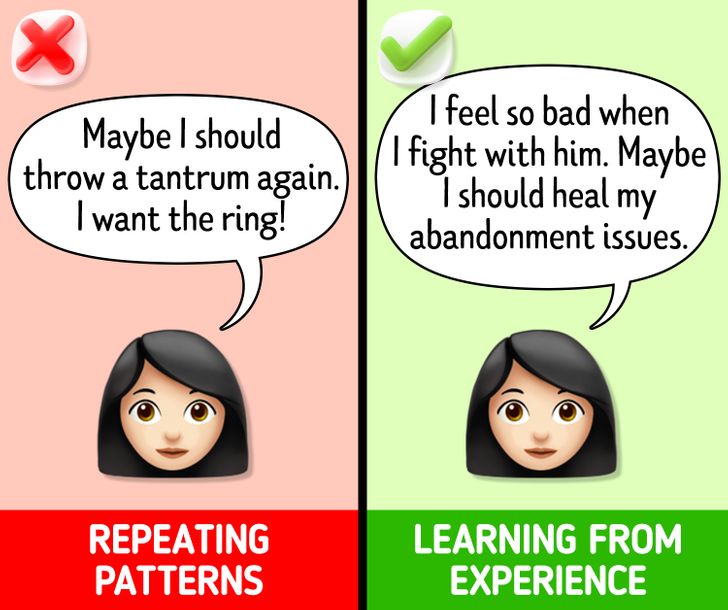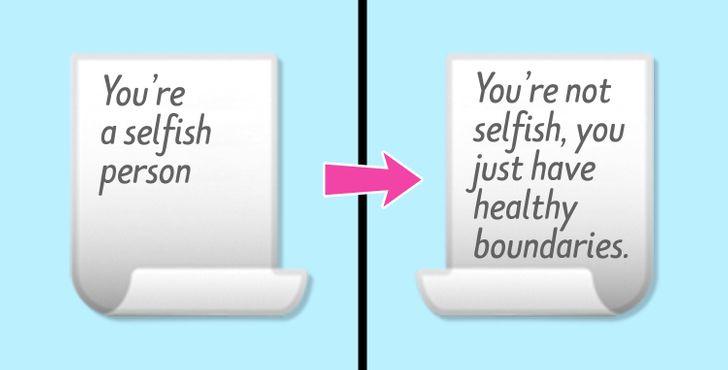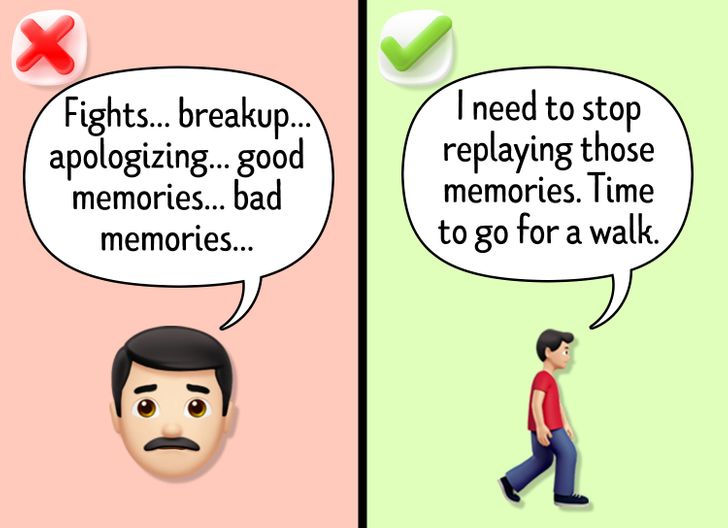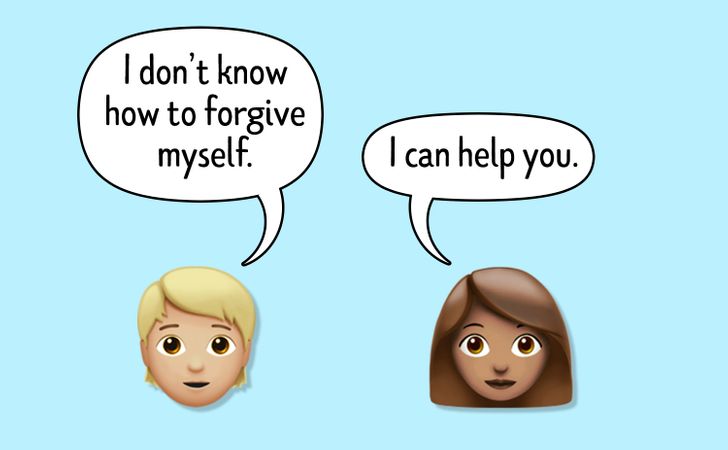How to Forgive Yourself
Sometimes it’s tough to make peace with oneself and move forward. When it comes to self-forgiveness, it calls for being compassionate, kind, and understanding toward yourself. So, if you want to make amends with a little mistake or one that majorly impacts your life, let 5-Minute Crafts be your guide to a peaceful journey of forgiving yourself.
1. Acknowledge your emotions.
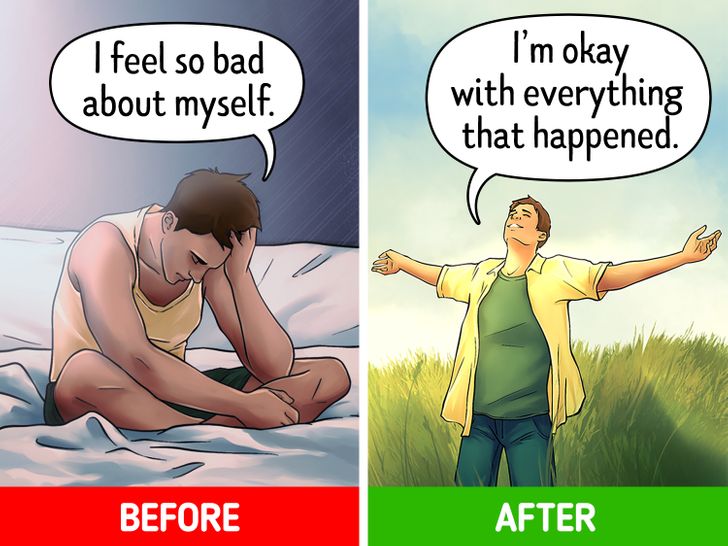
To begin the journey of self-forgiveness, you need to process your emotions first. Allow yourself to focus and recognize your feelings. Also, accept that you were triggered by these sentiments and welcome them.
2. Take responsibility.
Self-forgiveness is not about forgetting the past, it’s about accepting what happened and being kind to yourself. When you take responsibility for the actions you took that may have hurt others, it helps you to keep the regret and guilt at bay.
3. Allow the feelings to come up.
When you take responsibility for your actions, emotions like guilt and shame may surface. It is completely okay and also healthy to feel guilty. These sentiments help you push toward positive change in your behavior. When feelings like shame come up, it may bring up notions of worthlessness, and if left unaddressed, can cause aggression and a lot more issues.
Understand that the blunders that make you feel guilty don’t make you a bad person or undermine your worth in any way.
4. Fix the damage and trust yourself.
Just like you make amends with others when you ask them for forgiveness, forgiving yourself by making it up to your own soul feels the same. You can try getting rid of the guilt by fixing your mistakes.
Say sorry when necessary and seek ways to repair the damage you caused someone. It could seem like a benefit to the other, but eventually, when you rectify your blunders, you’ll never have to feel that you could have done more.
5. Learn from the experience.
Self-forgiveness also leads to learning from your circumstances and growing from them. This happens by understanding why you behaved a certain way and why you feel guilty. Then you can affirm to yourself to not repeat those behaviors again in the future. You may have messed things up, but your experience will help you make better choices in the future.
6. Quiet the voice of your inner critic.
On the journey of self-forgiveness, your inner critic is bound to step up. When it becomes difficult for you to handle the negative thoughts, try this exercise:
- Write down everything that your inner critic says on one side of a sheet of paper. And, on another side, write a loving, compassionate response to every thought your inner critic said on the other side.
7. Stop replaying the mistakes in your head.
While you’re processing your pain, you’re bound to play the story in your mind over and over again. Doing that will only keep you from forgiving yourself. So, the next time any thoughts of self-hatred come up, replace them with a positive action, like taking 3 deep breaths or spending time in nature. When you interrupt the thought pattern, it helps in reducing stress and anxiety.
8. Consult a therapist.
If the tips mentioned above are hard to follow, then you may want to talk to a professional therapist for help. They’ll help you break the unhealthy patterns and suggest better coping mechanisms.
